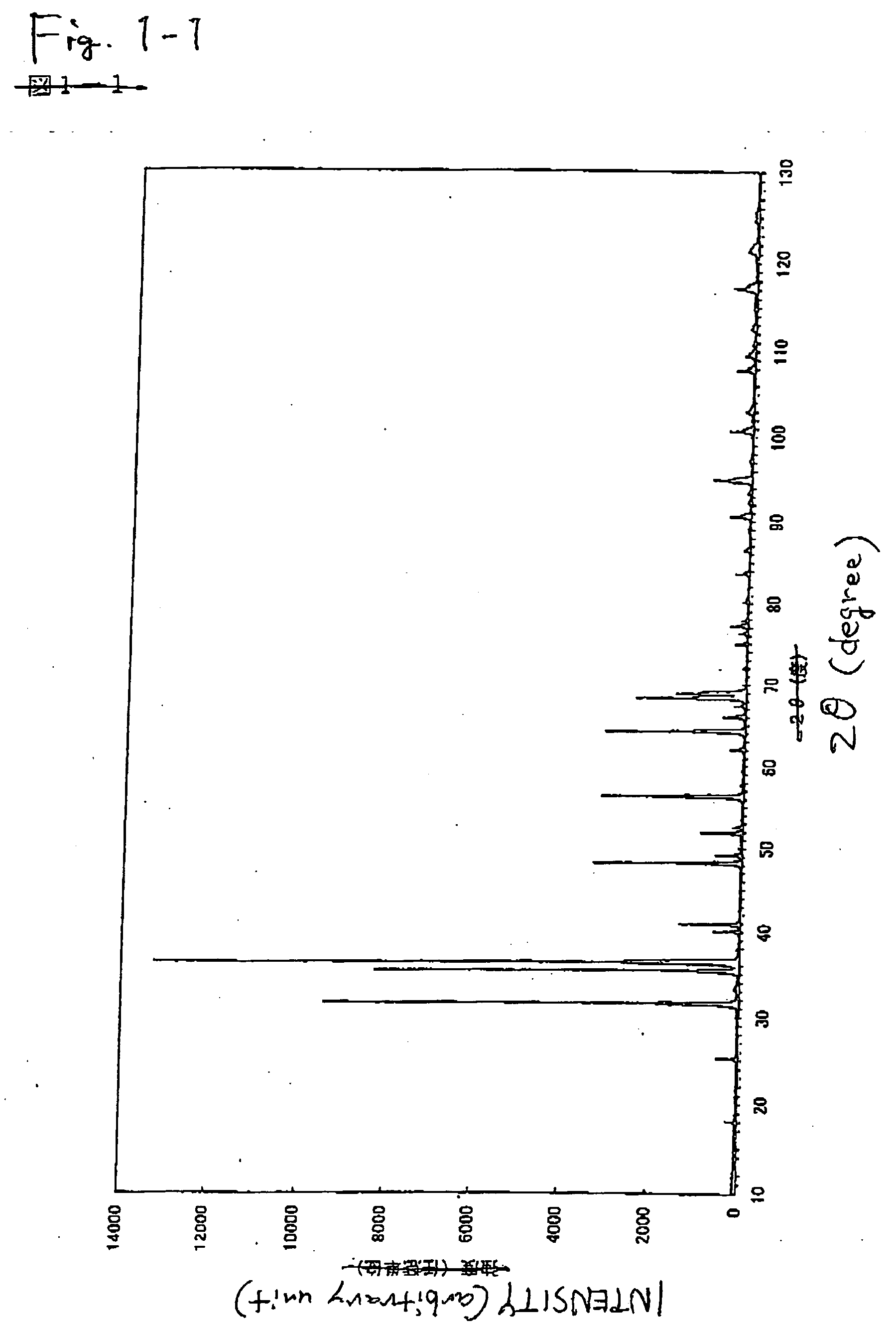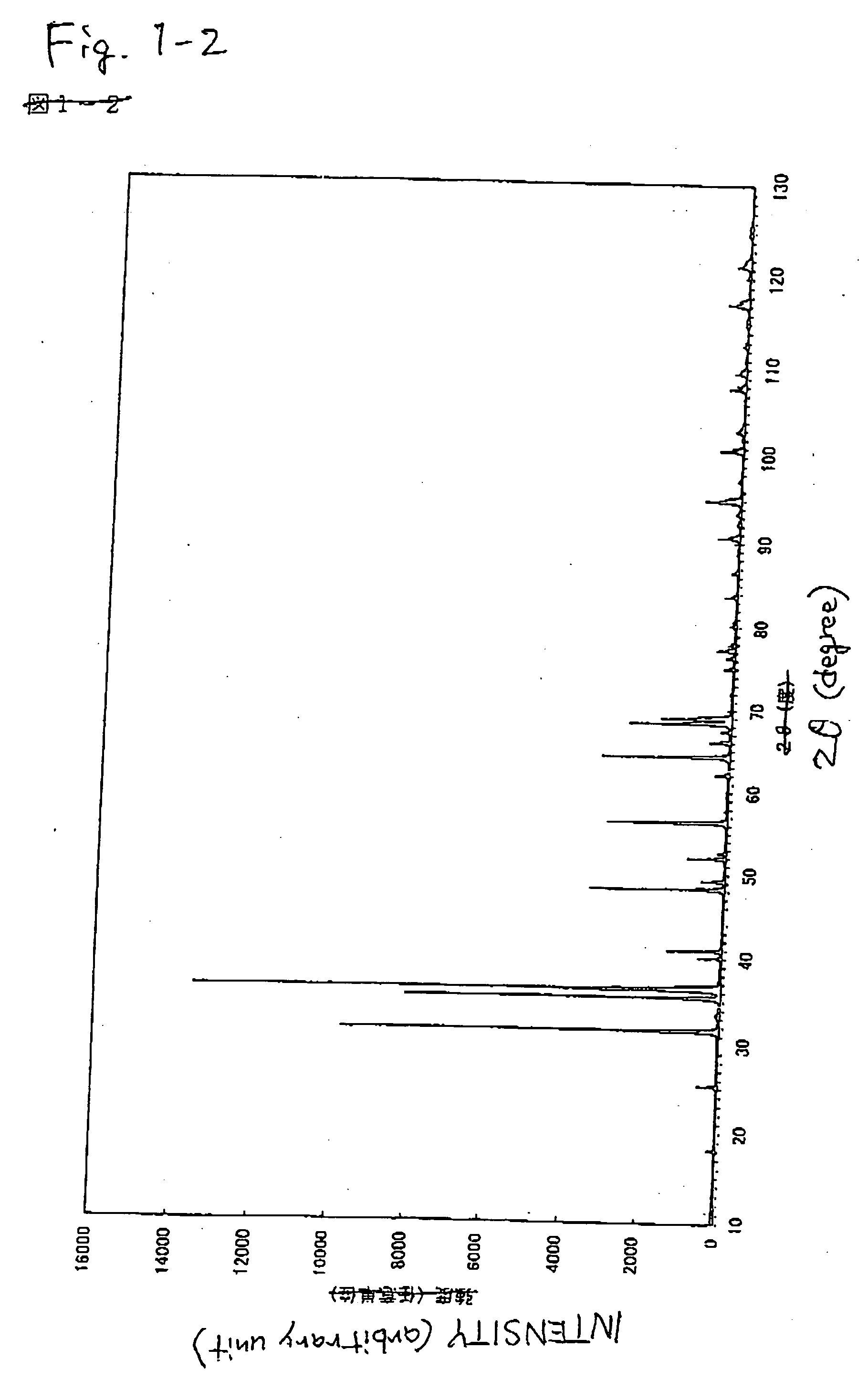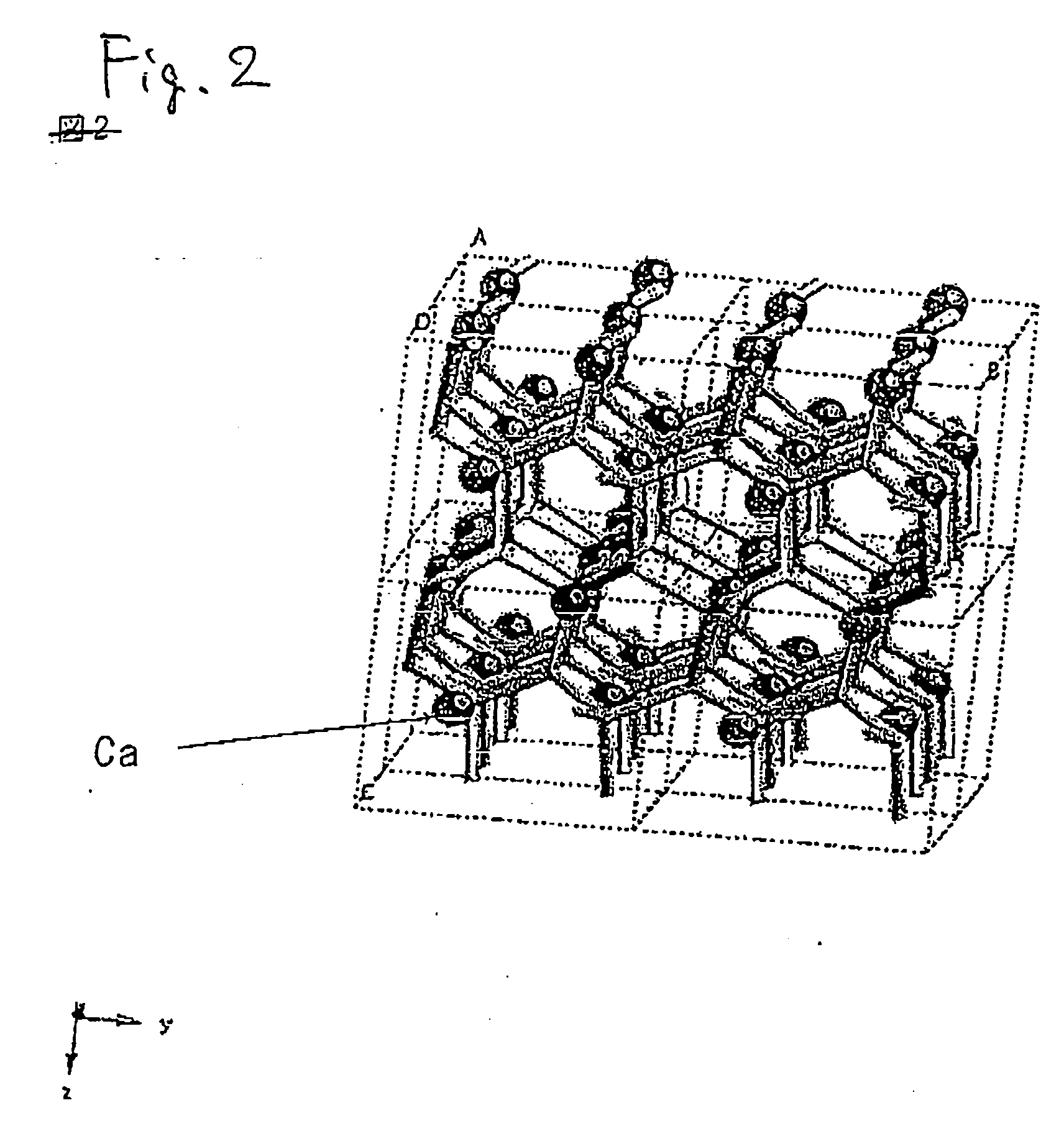Phosphor and light-emitting equipment using phosphor
a technology of phosphor and light-emitting equipment, which is applied in the field of phosphor, can solve the problems of phosphor exhibiting no decrease in luminance, unable to achieve the desired luminance reduction, and insufficient red color emission of luminance, etc., and achieve the effect of reducing luminan
- Summary
- Abstract
- Description
- Claims
- Application Information
AI Technical Summary
Benefits of technology
Problems solved by technology
Method used
Image
Examples
example 1
[0174] As raw powders were used a silicon nitride powder having an average particle size of 0.5 μm, an oxygen content of 0.93% by weight, and an α-type content of 92%, an aluminum nitride powder having a specific surface area of 3.3 m2 / g and an oxygen content of 0.79%, a calcium nitride powder, and europium nitride synthesized by nitriding metal europium in ammonia.
[0175] In order to obtain a compound represented by the composition formula: Eu0.008Ca0.992AlSiN3 (Table 1 shows parameters for designed composition, Table 2 shows designed composition (% by weight), and Table 3 shows a mixing composition of a raw powder), the silicon nitride powder, the aluminum nitride powder, the calcium nitride powder, and the europium nitride powder were weighed so as to be 33.8578% by weight, 29.6814% by weight, 35.4993% by weight, and 0.96147% by weight, respectively, followed by 30 minutes of mixing by means of an agate mortar and pestle. Thereafter, the resulting mixture was allowed to fall free...
examples 2 to 7
[0188] As Examples 2 to 7 were prepared inorganic compounds having a composition in which part or all of Ca was replaced with Ba.
[0189] The inorganic compounds were prepared in the same manner as in Example 1 with the exception of the compositions shown in Tables 1, 2, and 3. According to the measurement of X-ray diffraction, it was confirmed that the synthesized powders were inorganic compounds having the same crystal structure as that of CaAlSiN3. When excitation and emission spectra of the synthesized inorganic compound were measured, as shown in FIGS. 4 and 5, and Table 6, it was confirmed that they were red phosphors having an emission peak in the range of 570 nm to 700 nm, which were excited with an ultraviolet ray or a visible light of 350 nm to 600 nm. Incidentally, since emission luminance decreases as an added amount of Ba increases, a composition in the region where the added amount of Ba is small is preferred.
examples 8 to 15
[0190] As Examples 8 to 15 were prepared inorganic compounds having a composition in which part or all of Ca was replaced with Sr.
[0191] Phosphors were prepared in the same manner as in Example 1 with the exception of the compositions shown in Tables 1, 2, and 3. According to the measurement of X-ray diffraction, it was confirmed that the synthesized powders were inorganic compounds having the same crystal structure as that of CaAlSiN3. When excitation and emission spectra of the synthesized inorganic compound were measured, as shown in FIGS. 6 and 7 (Examples 8 to 11), FIGS. 8 and 9 (Examples 12 to 15), and Table 6, it was confirmed that they were red phosphors having an emission peak in the range of 570 nm to 700 nm, which were excited with an ultraviolet ray or a visible light of 350 nm to 600 nm. Incidentally, emission luminance decreases as an added amount of Sr increases, but the wavelength of the emission peak shifts to a shorter wavelength side as compared with the addition...
PUM
 Login to View More
Login to View More Abstract
Description
Claims
Application Information
 Login to View More
Login to View More - R&D
- Intellectual Property
- Life Sciences
- Materials
- Tech Scout
- Unparalleled Data Quality
- Higher Quality Content
- 60% Fewer Hallucinations
Browse by: Latest US Patents, China's latest patents, Technical Efficacy Thesaurus, Application Domain, Technology Topic, Popular Technical Reports.
© 2025 PatSnap. All rights reserved.Legal|Privacy policy|Modern Slavery Act Transparency Statement|Sitemap|About US| Contact US: help@patsnap.com



